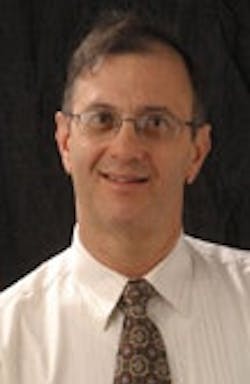Throw Overload Overboard
Mark RosenzweigBet you looked twice when you saw this month’s cover. The new logo gives Chemical Processing an updated and distinctive look. Since you undoubtedly are overloaded with things to read, it should help you spot our publication more easily. Overload, of course, goes well beyond your reading materials. As staffs have shrunk, most engineers and other plant professionals must handle more responsibilities. This very well may be spurring you to spend more time on site. However, devoting extra hours to the job does not necessarily mean that you can adequately address all the challenges you face. And it can raise problems when you’re trying to achieve an acceptable balance between work and your personal life. Becoming a slave to the site doesn’t make sense. Everyone needs adequate time to unwind and relax.With today’s work pressures, you may well envy hourly workers. Once their shifts end, they can go home, knowing their jobs are done for the day. To be fair, many don’t disengage completely, but ponder plant problems in their free time, too. Still, having a set schedule can seem appealing. But it doesn’t always help you avoid overload. Sure, better tools are helping to improve the productivity of hourly workers. Consider, for instance, the capabilities available to console operators in control rooms. Better communications between field devices and control systems, as well as improved diagnostic and analysis methods help operators more efficiently bolster plant performance. There’s still plenty of room for improvement. The continuing evolution of adaptive control promises big gains.But console operators also face overloads that can compromise their performance, warns Ian Nimmo, president and founder of User-Centered Design Services, Anthem, Ariz. Companies must never forget this as they scrutinize staffing levels in the quest to reduce fixed costs. The potential savings from eliminating one duty station in a plant that runs 24/7 and, with it, at least four full-time employees can be sizable — about $500,000 annually, Nimmo estimates. But just one major incident caused by inadequate staffing can wipe out these savings for years, he adds.What then is an appropriate operator workload? Don’t blithely accept the popular guideline of about 200 control loops, Nimmo says. It’s not just the number of loops, but the type of loops. Controlling reactor temperature usually is more challenging than maintaining a tank level. You must consider the types of equipment as well as the complexity and degree of integration of the process. An operator with a distributed control system (DCS) and advanced control should be able to handle more loops than one with poorly tuned loops who is forced to make frequent manual adjustments. But DCSs also can introduce workload issues from, for instance, a restricted view of the process and over-alarming. It also is essential to consider the physical environment in which the operator works, Nimmo says. Find some time to reassess your workload and that of console operators. You owe it to yourself and your plant. Mark Rosenzweig
Editor in Chief
[email protected]
Editor in Chief
[email protected]

